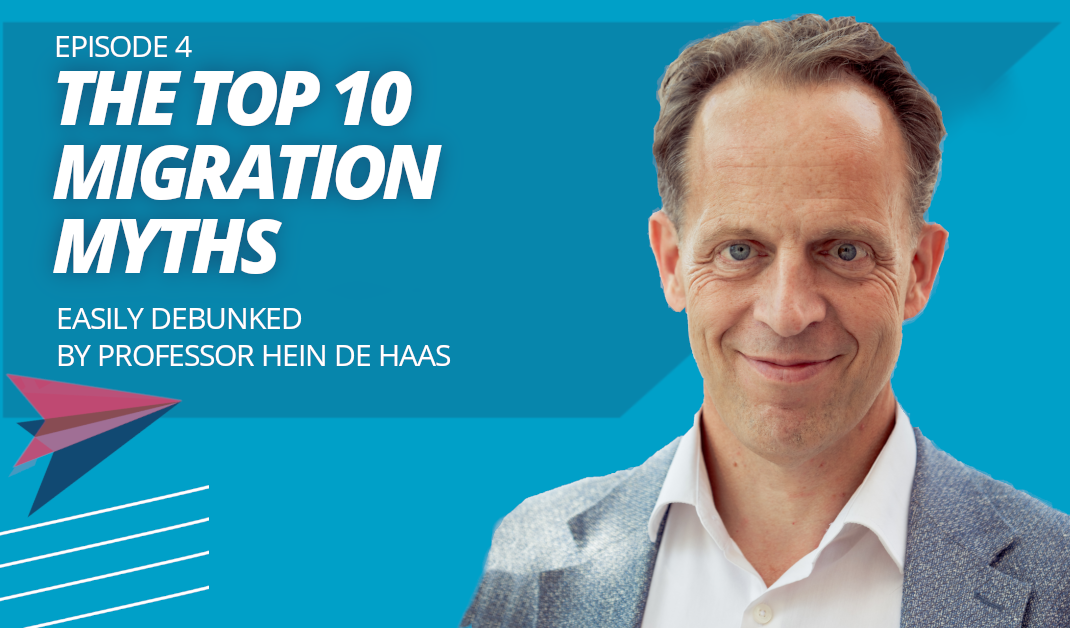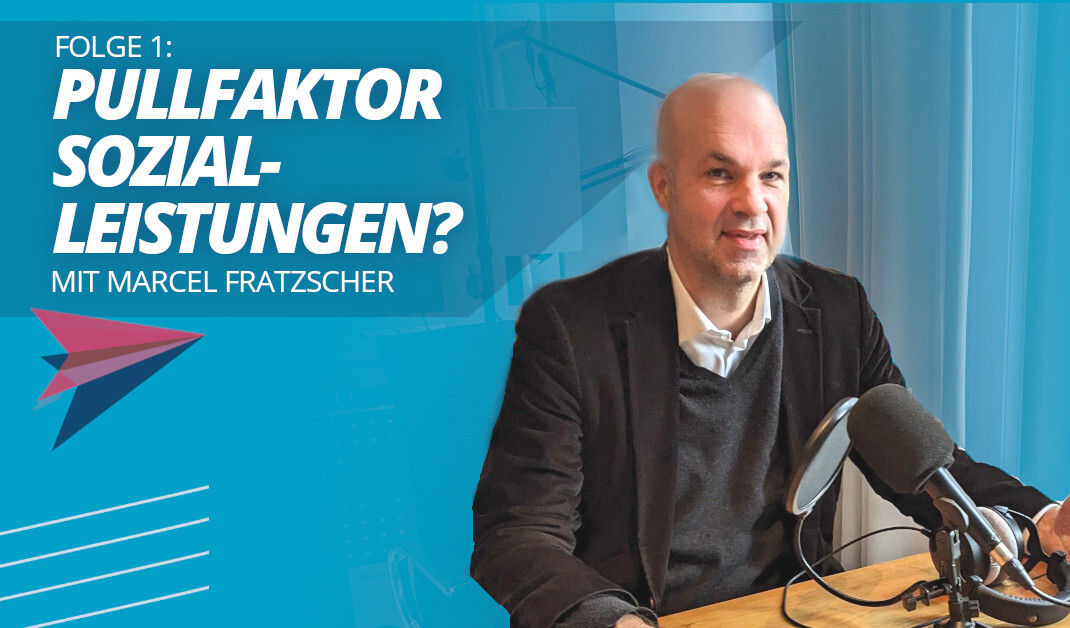oder auf Spotify, Amazon, Youtubeoder per RSS-Feed
ABOUT THIS EPISODE
Episode 4: "Top 10 Migration Myths"
with the sociologist Hein de Haas (University of Amsterdam)
The new Book "How Migration really works" you can find here >> Linkhttps://www.penguin.co.uk/books/455478/how-migration-really-works-by-haas-hein-de/9780241632208
The "Einwanderungsland"-Podcast is for anyone who wants to understand the bigger picture when it comes to migration. In 20 minutes, we offer insights, facts and figures to polarized migration debates. In this episode we talk to the dutch sociologist Hein de Haas (University of Amsterdam), a renowned expert on migration. We speak about his recent book "How Migration really works". And he has some surprising answers to the "Top 10 Migration Myths".
De Haas is arguing that there is "no need to panic". Although we see a lot of migration in the media. The actual numbers of international migrants would be surprisingly stable : 3 percent of the world population since decades.
He also emphasizes that there is a gap between what some politicians say about migration - and what they do. For example some right-wing-governments say they would go "tough" on migration and promise strict laws. But at the same time they do not control illegal labour, for examble in the meat-industry, in transport or restaurants. Because migrants, also irregular ones, are simply needed as workers in this areas. His conclusion: "So to really stop migration, you'd have to get your economy out of the way. And you could also say higher immigration is almost a sign of economic success."
TOP 10 MIGRATION MYTHS

-
Myth #1: Our borders are no longer safe.
-
Myth #2: There has never been more migration than today.
-
Myth #3 : Tough Politics can reduce migration.
-
Myth #4 : Fortress Europe is shutting down.
-
Myth #5 : The Right is anti- & the Left pro-Migration.
-
Myth #6 : Foreigners take jobs and lower the wages.
-
Myth #7 : We need skilled labour, not unqualified workers from poor countries.
-
Myth #8 : Migration theats our welfare state.
-
Myth #9 : Migration is the solution for ageing societies.
-
Myth #10 : Climate change will force mass migration.
ABOUT THE MYTHS
"Yeah. So if you watch the media and we've listened to politicians, we get the impression that migration is at an all time high now in absolute numbers. That's true. But if we look at relative numbers, we actually see that world migration has remained remarkably stable . 50 years ago, roughly 3 percent of the world population was an international migrant and the percentage has basically stayed the same."
"(...) The migration to Europe from african countries is largely controlled and legal immigration. For instance, 9 out of 10 Africans moving to Europe come legally , and that actually shows how much media images put things out of perspective and, uh, sort of don't allow us to see the bigger picture."
"So concerns about, for instance, undocumented migration are totally valid. I share those concerns. The only thing I observe is that policies haven't worked. Because what we're doing is more and more of the same, and it apparently has failed."
"And if you look at the lowest income earners, you also see from evidence they barely benefit from immigration at all economically. So it's not true that immigrants drive down their wages, but they don't benefit either much from immigration as well. And these are often exactly the same people who live in neighborhoods the migrants concentrate. So we could say that the benefits of migration are not equally distributed."
"We often see a huge discursive gap , or if you'd like to say a huge hypocrisy, in terms of what politicians promise to do and what they don't do ... And you can see that very clearly in Hungary and Italy, for instance, where we now have far right wing leaders who promise to cut down on immigration, who talk a lot about combating illegal immigration, but at the same time allow in record numbers of migrant workers, lower skilled migrant workers, because they're economically needed
Our Podcast "Einwanderungsland" is funded by the Robert Bosch Stiftung.
Further sources:
> Numbers on World Migration, Hein de Haas , Link
> Facts & Figures about Migration in Germany, Mediendienst , Link
> About the impact of migrants to the welfare state ("fiscal balance"), OECD ; Link
https://www.oecd-ilibrary.org/sites/4ccb6899-en/index.html?itemId=/content/component/4ccb6899-en



